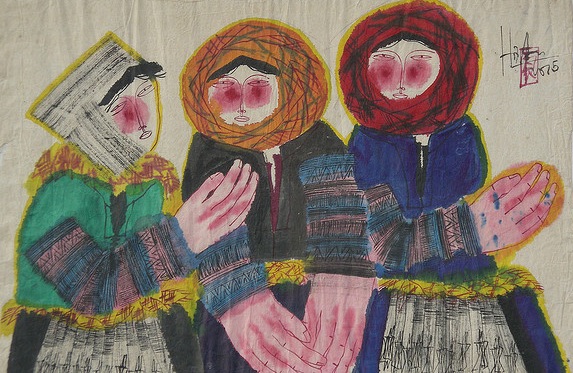I grew up in South Africa, and I’ve lived in the UK and Dubai. I’ve visited many countries on many continents sometimes alone, sometimes with other female companions and sometimes with other men. While the severity may differ from place to place, the treatment remains the same: women are mere objects in the eyes of many men.
I’ve been abused, harassed, felt-up, flashed, molested, gawked at, propositioned and felt unsafe walking alone in broad daylight more times and in more countries than is reasonable.
I’ve been afraid to wear certain clothes, smile, be friendly, make eye contact. I’ve stayed in at night to avoid harassment. I’ve been afraid to look ‘good’ most of my life.
Men are our friends, our fathers, our brothers, our partners, our lovers. They are also our abusers, violators, exploiters,
I have experienced them all.
I work in international development. I began as a fundraiser for a national children’s organisation, then turned to literacy, HIV and most recently have been involved in gender work—particularly, engaging men in gender justice efforts.
I have long felt the need for this. Working with women, providing support groups, so-called ‘safe spaces’ and income generating activities are, while necessary and valid, wasted if women return to the fathers, brothers, employers and lovers: the system that abused and exploited them in the first place. Working with women in this way, whilst possibly providing respite, will not fundamentally change the structures and ideologies that continue to perpetuate the subordination of women.
Until a woman can walk in the street, alone, wearing whatever she feels good in without fearing harassment at a minimum, we cannot say we live in a just society.
Men have also suffered. The idea of ‘being a man’ is drilled into boys from a young age: “Boys don’t cry, you’re a big boy now, be a man, I want a real man.” Over and over we continue this cycle and then we wonder why the men in our lives—our lovers, our partners, our husbands, our sons—are unable to communicate with us, to share with us, to show their emotions.
Despite all I have experienced at the hands, mouths and eyes of men, I know that the only way to change this is to work with them. To invite them in to share their stories, to invite them to listen, to consider a new way of being, to see them as my allies, as part of the solution. To believe in rehabilitation. To believe change is possible.
And so, this is what I would like to say to the men:
I have been hurt; I have been afraid—I am afraid—of men; I have also been loved. I’ve been treated with tenderness, kindness, understanding by beautiful, wonderful, caring men. For this I say thank you. Thank you for helping me to see that not all men are bad, not all men are “bastards.”
This is not enough though. There is so much more we need to do. So much to be said, to be addressed, to be changed. I cannot do it without you. I cannot change the fear, the abuse, the exploitation without you.
Change is a frightening thing. I am deeply aware of this for I have lived through change my entire life—as have we all. Leaving things as they are is not an option. I want you to feel free to cry, to share your hurts, your fears, your insecurities with me. I want to feel free to walk the streets, to let you in, to dance with abandon. I want freedom for us all.
I want us to tear down the walls of patriarchy and “norms” and stereotypes that have imprisoned us both for so long. I want us to be free—to be who we are in each moment.
I want this for you and for me. I want this for my friends, my family, for people I have never met and will never meet.
Will you join me? Will you work with me while we support each other to create a world outside of this prison?
~
Author: Bianca Marks
Editor: Caroline Beaton
Photo: Flickr







Read 2 comments and reply